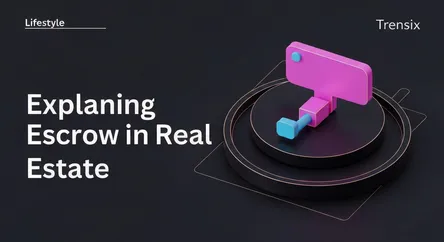Lifestyle
Explaining Escrow in Real Estate

Learn about escrow, the neutral third-party holding funds and documents to ensure a secure and smooth real estate transaction for buyers and sellers.
What is it?
Escrow is a legal arrangement where a neutral third party, known as an escrow officer, holds and disburses funds and documents for two parties in a transaction. In real estate, it's a crucial process that starts when a buyer's offer is accepted. The escrow agent holds the buyer's earnest money deposit, loan documents, and the deed. They ensure all conditions of the sales agreement, such as inspections and financing approvals, are met by both the buyer and seller before the property and money officially change hands, finalizing the sale.
Why is it trending?
While a long-standing practice, escrow's importance is heightened in today's complex housing market. With high property values, buyers and sellers seek protection from fraud and transaction failures. Escrow provides a secure buffer, minimizing risk for all involved. It guarantees that the seller has a legitimate buyer with secured funds and assures the buyer they will receive a clear title. This risk mitigation makes it an indispensable component of modern real estate deals, especially for first-time homebuyers navigating the intricate process of closing on a home.
How does it affect people?
For homebuyers and sellers, escrow offers significant peace of mind. It turns a potentially contentious process into a structured and secure transaction. The escrow officer acts as an impartial project manager, handling paperwork, coordinating with lenders, and ensuring funds for taxes and insurance are properly allocated. This system protects the buyer’s deposit and ensures the seller only transfers ownership after payment is fully secured. Ultimately, escrow simplifies the closing process, reduces stress, and builds trust by making sure everyone fulfills their contractual obligations fairly.